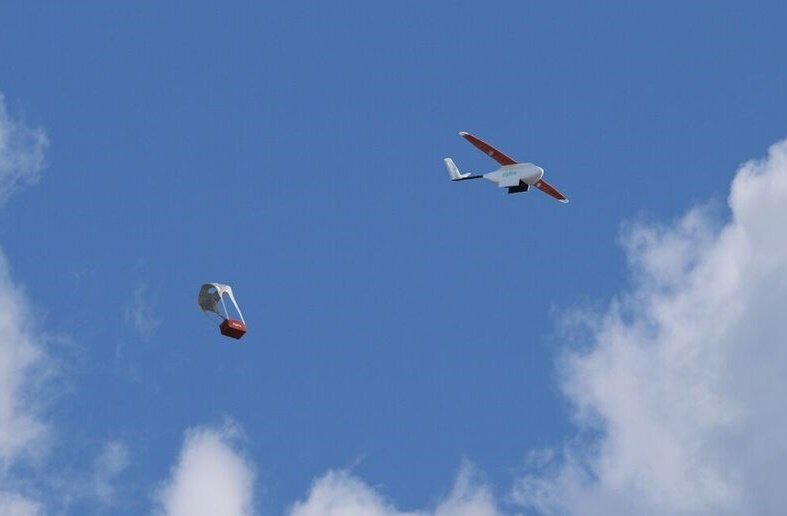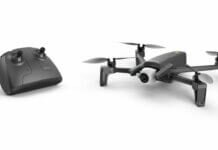The Rwandan government has begun using drones to conduct up to 150 on-demand, emergency deliveries of lifesaving blood to 21 transfusing facilities in the western half of the country – per day.
The drones and delivery service are built and operated by Zipline, a California-based robotics company. Though Rwanda’s drone delivery service will initially focus on blood, an international partnership between UPS; Gavi, the Vaccine Alliance; and Zipline will help the country quickly expand the types of medicines and lifesaving vaccines that can be delivered. The UPS Foundation has provided a $1.1 million grant toward the research.
According to the partners, postpartum hemorrhaging is the leading cause of death for pregnant women in Rwanda, and blood, which spoils quickly, requires storage and transport at safe temperatures. Because there are many different blood products and no way to accurately project future needs, many transfusion clinics do not keep all the blood they may need in stock. During Rwanda’s lengthy rainy season, many roads wash out, becoming impassible or non-existent. The result is that, all too often, people in need of lifesaving transfusions cannot access the blood they need to survive.
Now, the partnership explains, Rwanda’s national drone delivery program is enabling blood transfusion clinics across the western half of the country to place emergency orders by text message. The orders are then received by Zipline at its distribution center in the country’s Muhanga region, where the company maintains a fleet of 15 drones, called Zips. Each Zip can fly up to a 150-kilometer round trip – even in wind and rain – and carry 1.5 kg of blood. Zipline plans to make 50-150 emergency flights per day to 21 transfusion clinics. The company says it can fulfill orders in around half an hour.
Each Zip can fly up to a 150-kilometer round trip – even in wind and rain – and carry 1.5 kg of blood. Zipline plans to make 50-150 emergency flights per day to 21 transfusion clinics. The company says it can fulfill orders in around half an hour.
Rwanda plans to expand Zipline’s drone delivery service to the eastern half of the country in early 2017 – putting almost every one of the country’s 11 million citizens within reach of instant delivery of lifesaving medicines, the partnership explains.
“The inability to deliver lifesaving medicines to the people who need them the most causes millions of preventable deaths each year around the world,” comments Keller Rinaudo, CEO of Zipline. “Zipline will help solve that problem once and for all. We’ve built an instant delivery system for the world – allowing medicine to be delivered on-demand and at low cost anywhere.”
Zipline says it leveraged UPS’ Browntail cargo plane to transport the entire Zipline drone system from California to Rwanda. In turn, Zipline’s distribution center was constructed in only four weeks.
“One of the most important focus areas for The UPS Foundation is to spark public-private partnerships that create powerful scale and drive demonstrable impact in support of global humanitarian aid and relief,” says Eduardo Martinez, president of The UPS Foundation and chief diversity and inclusion officer at UPS.
Over the course of the next year and with the support of the partnership with UPS and Gavi, Zipline plans to expand drone delivery services to countries across Africa and the Americas. Additionally, Zipline recently announced plans at the White House to expand its service to the U.S., where it will serve Indian reservations in Maryland, Nevada and Washington state.












